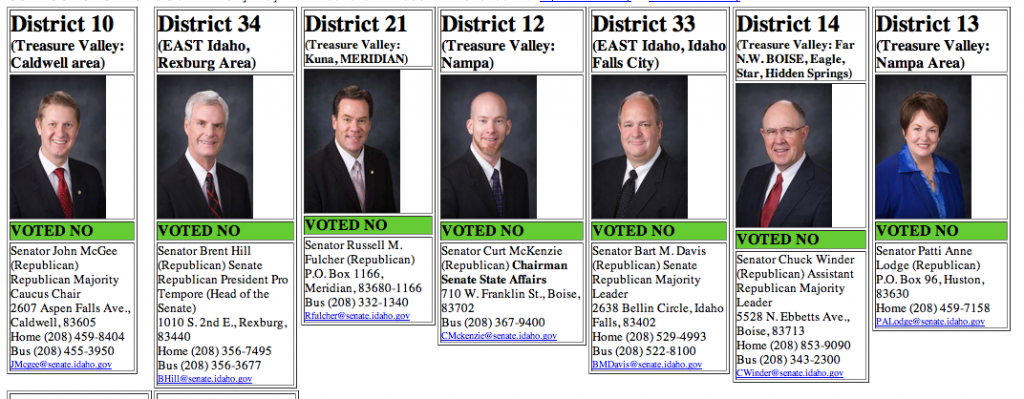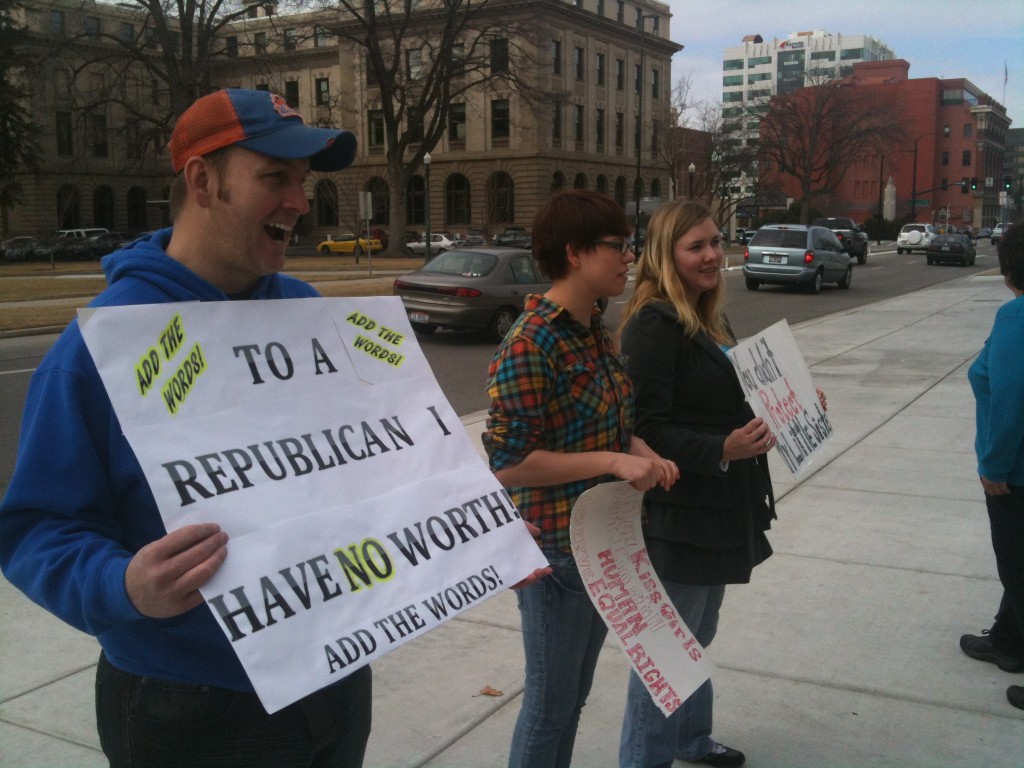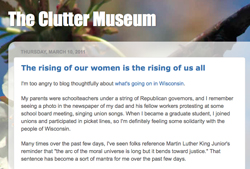Everyday life in Boise is similar to that of many of the places I’ve lived or visited. There are ridiculous numbers of big box stores and chain restaurants, late-1970s suburbs featuring ranch-aspiring homes of mediocre construction and design, sprawling new suburbs, a downtown that appears to be on the upswing, too many crappy supermarkets to count, a few historic buildings, a regional university, a couple dog parks, several commercial strips that appear to be caught in the 1970s, and some nice hiking in the hills on the edge of town.
As long as one doesn’t leave town much, it’s pretty easy to forget that Boise is more considerably more isolated geographically. In fact, it’s the most isolated city of its size in the United States; our nearest “big city” is 350 miles away–and it’s Salt Lake. Let me put it this way for my urban readers: if I want to make a Trader Joe’s run, I need to drive 320 miles to Bend, Oregon.
Even though its geographic isolation is significant, Boise is even more dramatically isolated politically from the rest of the state. That doesn’t mean the city is a hotbed of liberalism; I read someplace that about 30 percent of the students at Boise State are Mormon, and they tend to be politically more conservative than the average bear, and we have several active military and veteran students as well, and while I’ve found them to be more politically dynamic than the Mormon students, they are yet another reminder that I’m not in Davis anymore. (My sense is that students here are more likely to have fought in the oil wars than to bicycle against them.) Still, as long as I don’t pay too much attention to the news when the state legislature is in session, I can keep my blood pressure relatively stable, as politics in Boise itself are decidedly moderate.
Friday was an exception. Friday I was slapped hard by the realization that I moved to a very, very conservative state.
Idaho’s Human Rights Act protects people from employment and housing discrimination regardless of race, gender, or religion, but LGBT people in Idaho can be fired or refused housing because they’re gay or transgender. On Friday, a state senator, motivated by a group (and growing movement) called Add the Words, Idaho, proposed a bill to the State Affairs Committee to add sexual orientation and gender identity to the Human Rights Act. The Idaho Statesman relates what happened next:
In the committee’s narrow view, this proposal didn’t even merit real consideration. Friday’s hearing was a “print hearing” — when a committee decides whether to introduce a bill. A printed bill becomes a piece of the session’s public record — a document all Idahoans can read and judge for themselves.
Legislative committees sometimes print bills to advance the discussion of an important issue. On Friday, discrimination didn’t make the cut. The State Affairs Committee had neither the time nor the empathy. Committee members couldn’t dismiss this idea or its proponents quickly enough.
Idaho’s existing Human Rights Act bans employment and housing discrimination on the basis of race, religion or disability. The “Add The Words” bill would have added sexual orientation and gender identity. “There’s lots of groups who don’t have that ability as well, so the issue becomes, where does it stop? Where do those special categories end?” McGee asked.McGee said his constituents in Canyon County don’t support the change. He acknowledged that discrimination does occur against gays and lesbians in Idaho, saying, “For me to tell you that this doesn’t exist would be naive.” But, he said, “I think what we did today is say we don’t believe that this is the right way to deal with that.” Asked the right way, he said, “Continued education,” and added, “We say no to legislation all the time.”
Add the Words supporters told me that in conversations with individual senators, they have also been told that there just isn’t time this legislative hearing for such a bill.
That’s hilarious, considering the session I sat through on Friday lasted all of 55 minutes, and most of it was dedicated to apotheosizing Abraham Lincoln. There was time enough for not one but two Christian prayers, and for a lengthy reading of some things Lincoln said–including his opinion on banknotes. We heard, of course, about how he freed the slaves, but also about how he turned all his enemies into his friends. (Um. . . wasn’t he assassinated? Seriously–I wish the Senate would post the text of the prayer and readings on its website; it was a piece of ahistorical work if ever there was one.*) There was time enough for someone to sing “God Bless the U.S.A.”:
I’d thank my lucky stars,
to be livin here today.
’Cause the flag still stands for freedom,
and they can’t take that away.
I was choking on the irony.
There was once nice moment during the session, but I missed it because we were sitting at an angle that obscured our view of the senate president’s desk: Senator Nicole LeFavour of Boise, Idaho’s only openly gay state legislator, walked up to the dais and placed a sticky note on it. The note was a physical reminder of the thousands of sticky notes sent from all over the state and posted in the Capitol in support of Add the Words. LeFavour’s crossing into the well of the senate chamber was a serious breach of protocol, and it appeared to send some of the Republican senators into a confab in the senate antechamber. But what could they do? Censure the legislature’s only openly gay member on the day Republicans once again denied equal protection under the law to gays?
I’m a bigger fan than ever of LeFavour, who during the session also asked her fellow senators to recognize the Add the Words people in the gallery by applauding for us. It was an uncomfortable moment, I think, for everyone in the chamber and gallery.
I want to emphasize that, unlike in Washington state and California this week, the issue under consideration was not gay marriage, which was forbidden in Idaho by a state constitutional amendment in 2006. We’re talking about basic civil protections. Regardless of what Senator McGee believes, adding protections for LGBT people isn’t going to establish a slippery slope by which the state will be forced to add countless “special categories” of people to the act. This is a group of people who face significant discrimination and even physical danger in the state–discrimination that McGee himself recognized in the Spokesman Review article–and they need and deserve legal protection from discrimination and abuse.
I’ll be writing respectful letters to the senators on the State Affairs Committee, as well as to my own (Democratic) senator–who, based on what I heard from Add the Words leaders, has been lukewarm to the bill, even though he wrote me a note last month assuring me he supports it. As Senator McGee said, it’s clear Idahoans are in need of “continued education.” As an Idaho resident, historian, professor, and LGBT ally, I’m happy to provide such education to our legislators.**
One more thing. . . Would you pretty please “Like” the Add the Words page on Facebook? Every little bit of support is appreciated.
* If any historian is going to be OK with lay public interpretations of American history, it’s me. Seriously, I’m fascinated by such attempts to construct both hegemonic and alternative narratives. But in this case the irony was too big, the stakes too high.
** I’ll be even happier when federal laws extend full civil rights to LGBT folks, and I can write about how these Idaho senators were as much on the wrong side of history as those who opposed civil rights for women and people of color.




We went through this in Arkansas. I believe the legislation finally passed in 2003 or so, 7 or 8 years after it was first introduced. The vitriol that was leveled at people advocating for basic rights was really awful. I think it helped the cause eventually.
we are at 6 years….sigh…..